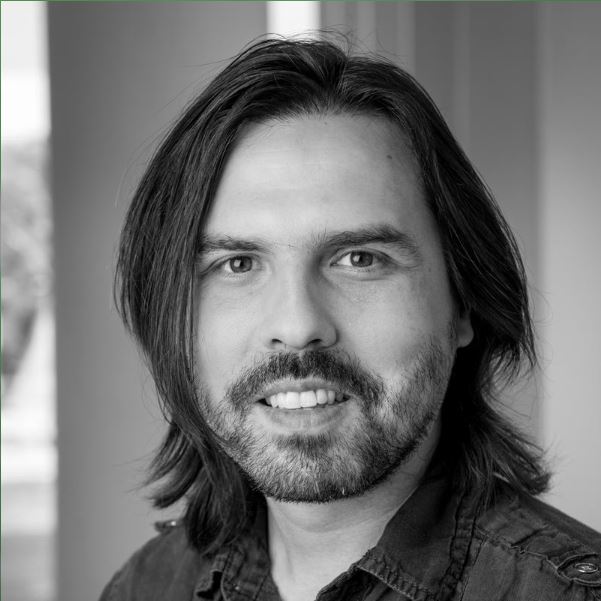César Hidalgo holds an ANITI Chair at the University of Toulouse, an Honorary Professorship at the University of Manchester, and is a visiting Professor at Harvard’s School of Engineering and Applied SciencCes. Hidalgo is also a founder of Datawheel, a data visualization and distribution company. Prior to joining the University of Toulouse, Hidalgo was a professor at MIT where he directed the Collective Learning group.
Dr. Hidalgo’s research focuses on collective learning–the learning taking place in teams, organizations, and economies. With his group, he develops analytical tools and models to understanding how collective learning takes place, and also, they design tools to help improve the collective learning of organizations.
These tools include The Observatory of Economic Complexity (the world’s leading visualization engine for international trade data), Pantheon (a platform mapping human collective memory), DataViva (a platform visualizing economic data for all of Brazil), Immersion (a tool to visualize personal email networks), DataUSA (the most comprehensive effort to visualize US public data), and DIVE (a generalized tool designed to transform any dataset into a story).
A native of Santiago de Chile and a permanent resident of the US, Hidalgo is the only hispanic faculty of the MIT Media Lab. He holds a PhD in physics from the University of Notre Dame and a bachelor’s degree in physics from the Pontificia Universidad Católica de Chile. Hidalgo is the author of Why Information Grows: The Evolution of Order, from Atoms to Economies (Basic Books, 2015), and a co-author of The Atlas of Economic Complexity (MIT, Press 2011).
Alessandra Faggian is Professor of Applied Economics, Director of Social Sciences and Vice Provost for Research at the Gran Sasso Science Institute. She is also past President of the North American Regional Science Council (NARSC), current co-editor of Journal of Regional Science and previous co-editor of the journal Papers in Regional Science.
Dr Faggian’s research interests lie in the fields of regional and urban economics, demography, labour economics and economics of education. Her publications cover a wide range of topics including migration, human capital, labour markets, creativity and local innovation and growth. She has co-authored over 80 academic publications. Her articles have appeared in journals such as Oxford Economics Papers, Cambridge Journal of Economics, Feminist Economics, Regional Studies, Papers in Regional Science, Journal of Regional Science and The Journal of Economic Geography.
Dr, Faggian is the 2007 recipient of the Moss Madden Memorial Medal by the Regional Science Association International: Irish and British section (RSAIBIS) for the best paper published in the year 2006 and the 2015 recipient of the Geoffrey Hewings Award by The North American Regional Council for outstanding research contribution by a young scholar in the field of regional science. In a recent ranking of the top 100 regional scientists in the world (Rickman and Winters, 2016), she was ranked 19th.
Dr Neil Lee holds a PhD in Economic Geography from the LSE and was a visiting scholar at TCLab, Columbia University.
His research considers cities, economic change and the social dimensions of innovation. He is particularly interested in the distribution of the proceeds of growth and the links between innovation and inequality. He has also published on the economics of the creative industries and the link between cultural diversity, innovation and urban economies.
Mercedes Delgado is Associate Professor of Strategy and Innovation at Copenhagen Business School and Research Scientist at the MIT Innovation Initiative.
Delgado’s research focuses on the relationship between the regional business environment and the performance of firms, regions, and countries. She examines the role of regional clusters—geographic concentrations of related industries, firms, and supporting institutions —in job creation, innovation, entrepreneurship, inclusivity, and resilience. Delgado has developed new methods for defining and mapping industry clusters and the supply chain economy, providing tools to help firms, practitioners, and policymakers create regional and national strategies. In recent work she explores the interaction between firm location choices through the value chain and firm performance.
Delgado’s work has been published in top economic, policy, and strategy journals. She has received a number of prestigious fellowships and research grants, including a recent National Science Foundation grant on Mapping the Inventor Gender Gap. She served as a lead researcher on the US Cluster Mapping Project: Mapping a Nation of Regional Clusters. More information at delgadom.com.
Professor Meric S. Gertler is one of the world’s foremost urban theorists and policy practitioners. His research focuses on the geography of innovative activity and the economies of city-regions. He has served as an advisor to local, regional and national governments in Canada, the United States and Europe, as well as to international agencies such as the Organisation for Economic Cooperation and Development (Paris) and the European Union. He was the founding co-director of the Program on Globalization and Regional Innovation Systems (PROGRIS) at the Munk School of Global Affairs, served as director of the Department of Geography’s Program in Planning, and holds the Goldring Chair in Canadian Studies.
His research has attracted $8.4 million in external funding and he has published nine books including Manufacturing Culture: the Institutional Geography of Industrial Practice, and Growing Urban Economies: Innovation, Creativity, and Governance in Canadian City-Regions, the latter co-edited with Professor David Wolfe. He is also co-editor of the widely used Oxford Handbook of Economic Geography, winner of Choice Magazine’s “Outstanding Academic Book” award, and the forthcoming New Oxford Handbook of Economic Geography. His more than 90 journal articles and book chapters have had significant impact in his field and have led him to be one of Canada’s most highly cited geographers. He has held visiting appointments at Oxford University, University College London, UCLA, and the University of Oslo.
Shiri M. Breznitz, an economic geographer, specializes in innovation, technology commercialization, and regional economic development. She is an associate professor at the Munk School of Global Affairs & Public Policy and a member of the Innovation Policy Lab at the University of Toronto. Dr. Breznitz completed her PhD at the University of Cambridge and her postdoctoral fellowship at the University of North Carolina, Chapel Hill.
Her research is at the critical intersection of theory and policy to fit the new realities of globalization. Dr. Breznitz’s work has informed policymaking at the local, national, and international levels. She has advised on the role of universities in the larger story of innovation, on the economic impact of biotechnology, and on the role of clusters in driving innovation. Breznitz has been the Economic Geography section editor for the Geography Compass Journal since 2016. In 2018, Dr. Breznitz co-led the University of Toronto’s first Alumni Impact survey.
Breznitz’s book, “The Fountain of Knowledge” with Stanford University Press (July 2014), analyzes universities’ relationships with government and industry, focusing on the biotechnology industry as a case study. She has also, co-edited the book “University Technology Transfer: The Globalization of Academic Innovation,” with Routledge Press (September 2015). Additional work by Dr. Breznitz has been published in top economic geography, management, and policy journals. Current projects includes work on the creative industries and crowdfunding, evaluating the economic role of students’ entrepreneurship, and a study on the spatial distribution of entrepreneurship.












